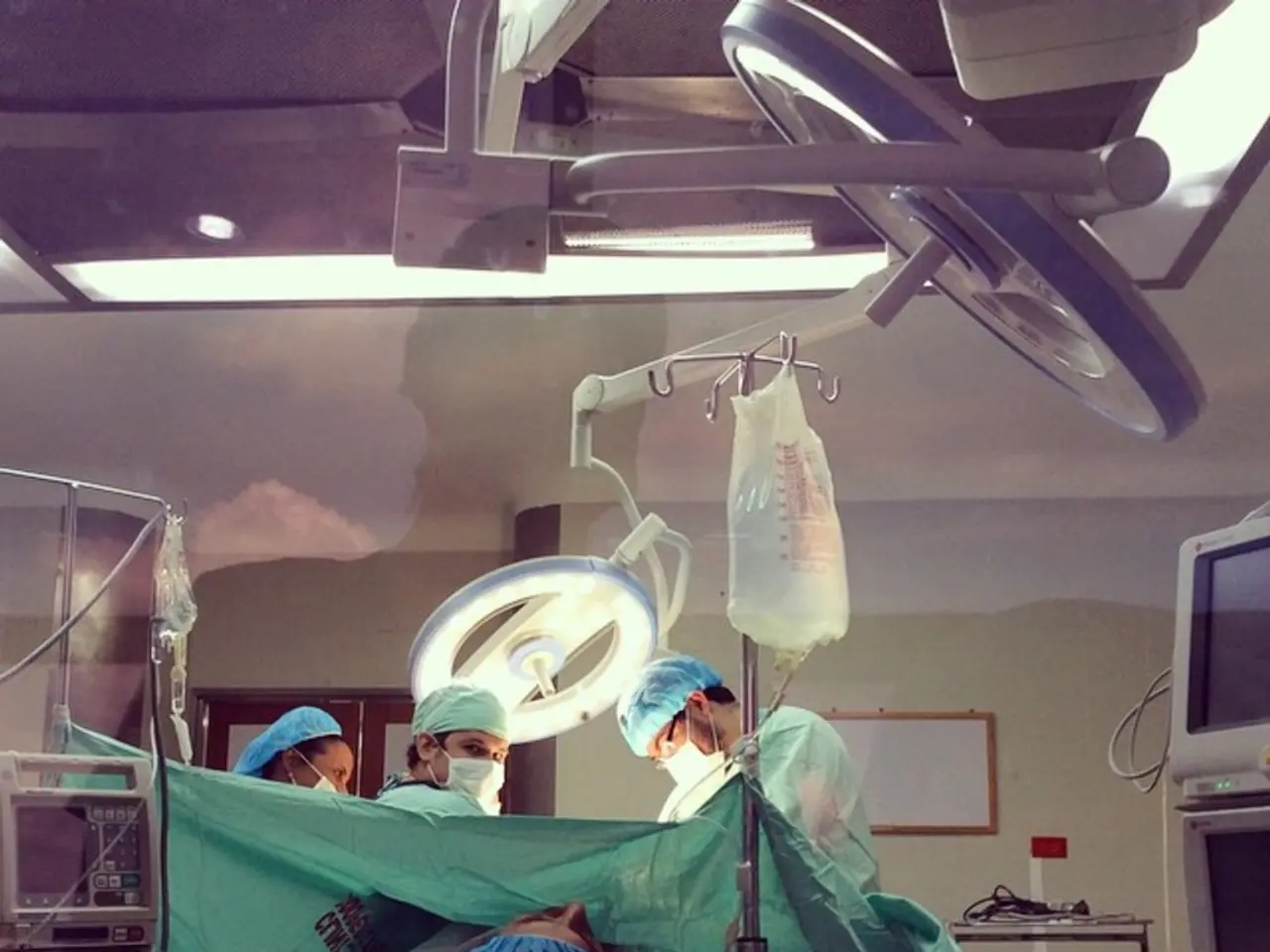Medical operation on newborns receives significant advancement
Queen Sirikit National Institute of Child Health Pioneers Minimally Invasive Surgery for Newborns
The Queen Sirikit National Institute of Child Health, a national centre for paediatric surgery, has made significant strides in the field of neonatal surgery. Since 2014, the institute has been performing minimally invasive surgeries (MIS) on newborns using tools as small as 3mm, a remarkable advancement in paediatric surgical care[1].
This evolution in neonatal surgery is not confined to small tools alone. The institute has also adopted Single Incision Laparoscopic Surgery (SILS), a technique that allows surgeons to perform operations through a single incision, thereby reducing surgical wound size[1]. To further enhance anatomical visualisation, the team at the institute combines SILS with ICG fluorescence imaging[1].
These innovations have led to improved precision and safety of procedures performed by paediatric surgeons at the institute. Additionally, SILS has been found to minimise post-operative pain, shorten hospital stays, and reduce parental work absence[1].
The Department of Medical Services (DoMS) has been instrumental in introducing these advancements. Thanin Wechapinan, a deputy director-general of DoMS, made a statement about the innovations, highlighting the institute's commitment to providing the best possible care for its young patients[2].
The institute has been performing approximately 1,500 operations a year, with most of these procedures being for congenital conditions[3]. The institute was the first in Thailand to introduce endoscopic surgery for correcting congenital anomalies in newborns, and it has since performed over 1,000 endoscopic surgeries on paediatric patients, making it the highest-volume centre in Thailand[3].
Moreover, the technology not only enhances clinical outcomes but also plays a critical role in training paediatric surgery residents and operating room nurses nationwide[1]. The institute began performing minimally invasive surgery for older children in 1997 using 15mm instruments, and it was able to operate on younger patients using 5mm instruments starting in 2012[1].
While detailed outcomes data specific to this program at Queen Sirikit is not readily available, the introduction of these advanced MIS approaches suggests improved survival rates and quicker recoveries in newborn surgical patients, based on global trends in pediatric minimally invasive procedures[2].
In conclusion, the Queen Sirikit National Institute of Child Health's advances in minimally invasive surgery for newborns represent significant innovation, providing life-saving operations with better postoperative results and cosmetic outcomes than traditional newborn surgeries[2].
References: 1. Queen Sirikit National Institute of Child Health 2. Department of Medical Services 3. Bangkok Post
The Queen Sirikit National Institute of Child Health, a renowned institute for paediatric surgery, not only focuses on minimally invasive surgeries (MIS) for newborns but also adopts advanced medical techniques such as Single Incision Laparoscopic Surgery (SILS) and ICG fluorescence imaging to enhance health-and-wellness outcomes for newborns with medical-conditions. These innovations aim to improve precision, reduce post-operative pain, shorten hospital stays, and provide better care for newborns.




